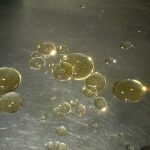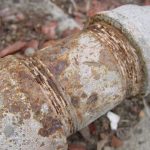How Often Should You Maintain Your Sewer System
Fully functional plumbing is a vital component of any home or property. Like any part of your house, your sewer system requires regular maintenance to avoid serious problems such as a sewer backup or stoppage in the main line. The question is how often should you be maintaining your sewer system and what do you need to do to keep it in excellent condition.
The Importance of an Annual Inspection
Since most of your sewer system is buried underground, spotting a potential problem can be difficult. In many cases, it is only when symptoms such as slow running drains, flooding or nasty smells appear, that homeowners realize that all is not well. These unpleasant surprises can be minimized with an annual sewer inspection.
Having a professional perform an inspection of your sewer system can provide the opportunity to diagnose and correct any minor issues before they can develop into major problems. For example, during the inspection, the technician may use a specialized camera with digital video recording equipment to look down the length of your sewer line. This will allow them to see if there are any obstructions in the line, damage from tree roots or deterioration in the line that would not be apparent to the naked eye from the surface.
Once the inspection has been performed, any minor issues can be repaired or corrected, which will significantly reduce the costs involved. Alternatively, your sewer system may be given a clean bill of health, so you can feel confident that you have minimized the risk of your home being flooded.
Other Maintenance Measures
Aside from an annual inspection, there are some basic maintenance measures that can be done throughout the year, to keep your sewer system functioning correctly. The most important means of maintaining your sewer system is to watch what you are flushing down your drains and toilet.
Domestic plumbing systems and sewer lines are designed to carry human waste, waste water, and toilet paper and that’s it! You should take care not to flush sanitary napkins, paper, diapers and other unsuitable materials. Your toilet is NOT a trash can. Any item other than toilet paper is garbage and should be disposed of appropriately.
You should also consider how you use your garbage disposal and treat your kitchen drains. That, contrary to popular belief, isn’t a trash bin either. To ensure that your garbage disposal performs correctly, run the water for a few seconds before you put anything in and allow the water to run for a few seconds after you finish. Prior to the days of water shortages, now a common issue in California, we would have said to actually run the water for minutes, not seconds.
You should also avoid putting fibrous or starchy foods such as celery stalks, pasta, rice, onion and potato peels or corn husks into the garbage disposal. This is a BIG NO-NO. These foods will usually cause an obstruction that may not only damage your disposal, but could block the drain and require a plumber. Never pour fat, grease or oil down the drain, even if you are running hot water. These materials can solidify inside the drain blocking the pipe like cement.
Finally, when you are starting your spring landscaping, consider what and where you are planting. Although it can be difficult to establish the location of your sewer line, you should take care to avoid planting trees or shrubs that will develop extensive root systems near the main lines going to the street. As these plants grow, their roots can invade the lines, causing pipe ruptures and blockages.
By Giovanni Longo
Giovanni Longo is a 3rd generation master plumber who has been practicing his craft and trade in the greater Los Angeles area for well over a decade and a half. A plumbing and hydraulics-engineering innovator, Giovanni’s particular world-class expertise focuses on dealing with challenging sewer system designs as well as resolving complex commercial and residential draining issues. As a certified Flood Mitigation expert, he is also well versed in a wide variety of water damage and remediation solutions.





